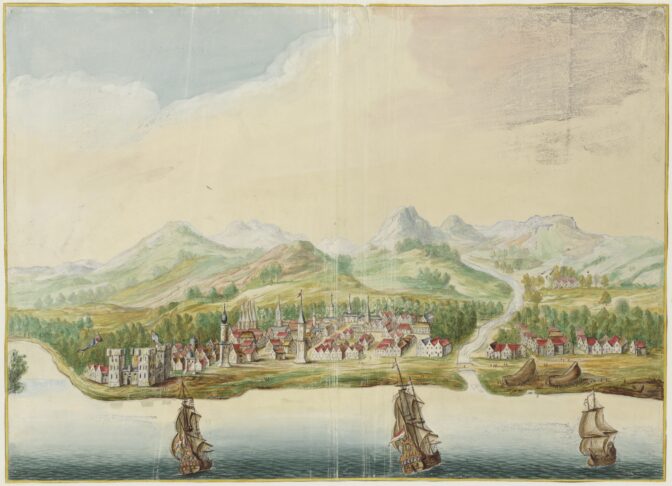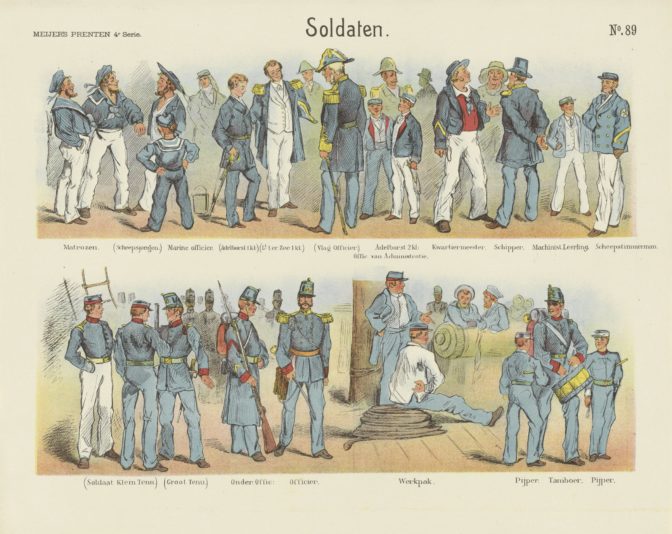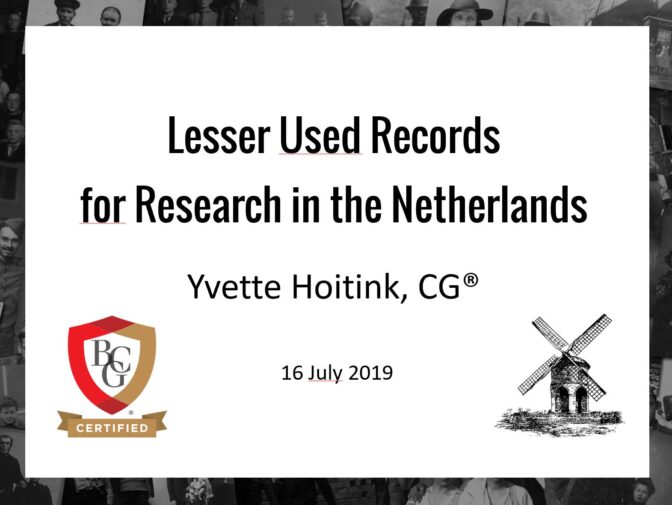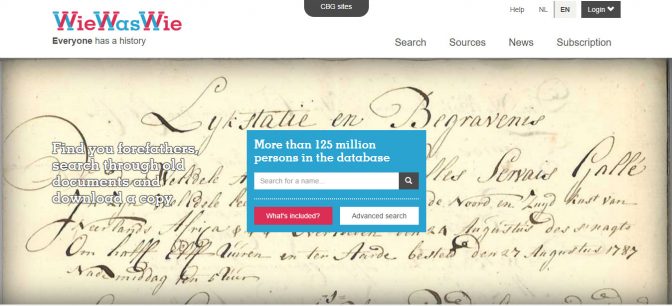After the webinar on Lesser Used Records for Research in the Netherlands I did earlier this week, there were several interesting questions. I answered some of them in the Q&A session after the webinar. Since several of those referred to websites, I thought I’d answer them here as well.
[Note: If you use the link to the webinar to view it, I will get a small commission and you will be sponsoring this free website and newsletter.]
When did the Dutch stop using patronymics?
Hereditary last names became mandatory in 1811, when the civil registration was introduced. In some parts of the country, mainly in Friesland and Groningen, patronymics remained in use for several decades in addition to last names. To this day, in some families from the area, children are sometimes given second names that match their father’s first name.
Is there one site with variations of first names?
The Corpus of First names in the Netherlands has a database with first names. You can search for a first name and it will show the popularity since 1880 and give some variations. It does not have many of the historic variations though, mostly modern names. This will make a great topic for a future blog post.
I do have a post about English versions of Dutch first names.
One viewer was kind enough to point out the white paper on Dutch names at FamilySearch.
Are records available for the Dutch East India Company?
The records of the Dutch East India Company (VOC) are kept at the National Archives in The Hague. Many of the records have been scanned. The online finding aid of the VOC describes all the records and includes the scans.
Most of the records are unindexed and can be browsed only. Indexes exist for:
- People who sailed on the VOC ships
- Last wills created in the East Indies
- Letters sent from VOC outposts
- Sailing letters: Letters captured from VOC ships by the English

View of Calicut, India. Credits: Johannes Vingboons, collection Nationaal Archief (public domain)
Is there a specific site for researching ancestors who were Dutch but ruled in other countries – like Guyana?
Records created in former colonies and trade posts of the Netherlands are typically kept in those countries now.
The National Archives of the Netherlands has a program called Shared Cultural Heritage where it works together with archives keeping records of former colonial and trade relations to preserve and digitize the records.
As part of this program, Guyana records have been scanned and are now available via the website of the National Archives of the Netherlands – Dutch Series Guyana. The National Archives of the Netherlands also provides access to records from other former colonies and trade posts, such as Suriname and New Netherland.
Is Zeeland a province of the Netherlands?
Yes. There is also a village called Zeeland in the province of Noord-Brabant.
Do Jewish records survive and how far back, specifically for Amsterdam?
Most of the records discussed in the presentation will also include Jewish families. Records of synagogues have often survived. The Amsterdam City Archives keeps those records for the Amsterdam synagogues. The Portuguese-Israelite synagogue records go back to the 1580s.
See the finding aids on their website and search for terms like Joods*, Isr*, and synag*. You can order scans (“digitaliseren”) from the finding aids, a free service.
My ancestors were born in Tilburg in 1826 and 1872. Is Tilburg a higher government administration center that keeps records of local towns and villages or would they truly be born there?
Tilburg was a municipality that included several hamlets. So the person would have been born in the municipality of Tilburg. The birth record or population register should give you the name of the district/hamlet.
Where might I find records on Casparus van Naarden who relocated to New Amsterdam in the 1640s?
In general, you need more than a name to find people in the Netherlands in this period. The name “Van Naarden” could be a newly adopted name, in which case he might be from the town of Naarden and wouldn’t actually be called Van Naarden in Dutch records. Alternatively, it could be a hereditary name that has been in the family for generations, in which case he would be listed as “Van Naarden” in Dutch records too.
Before attempting to find him in Dutch records, you need to know more about him by studying him in New Amsterdam records, such as the church records (baptisms, marriages), notarial records, orphan chamber records, land records. Look for places of origins, associates (especially those shortly after emigration), possible family members, etc.
How can I finding my ancestors on WieWasWie? Can I access records online?
WieWasWie publishes indexed records from several archives in the Netherlands. The free search function is limited and does not support wildcards. This makes it hard to find anything since WieWasWie only finds exact matches. A subscription is needed to use WieWasWie effectively.
Many of the records on WieWasWie are also available through other websites. See free alternatives to WieWasWie.
For many records, WieWasWie includes a link to the scans. Sometimes, only an index is available. In that case, check the Digital Resources Netherlands and Belgium to see if another site has the images.
What is the “Web: Netherlands, GenealogieOnline Trees index 1000-2015” database on Ancestry and how reliable is it?
GenealogieOnline is a website where many Dutch genealogists publish their trees. Ancestry has indexed the website and made it available as hints.
Like any tree website, the quality of the trees varies. Anything you find there should be verified using original records. See the article Ask Yvette – What is GenealogieOnline for more information.
How do I search the Gelders Archief website for notarial records?
The Gelders Archief does not keep most of the notarial records for the province of Gelderland, since these records are typically kept at local archives. Where these records are available would depend on the location. The Erfgoedcentrum Achterhoek en Liemers has scans for some of the notarial records from the eastern part of the province. Check the Digital Resources Netherlands and Belgium website for notarial records in other parts of the province.
Are these records available for the Flemish side of Belgium?
Most of the records discussed in the presentation are available for Flanders too. The online availability may not be as good as in the Netherlands. The Digital Resources Netherlands and Belgium also has links to Belgian sources.
Can you speak to “winning the lottery” for Napoleon’s army and the possibility of paying someone else to take your place?
From the Napoleonic times forward, each year the 19-year-old men were checked for eligibility for military service. Those who were eligible were assigned a lot number. The army determined how many soldiers were needed, and those with the lowest lot numbers were drafted. Until 1896, it was legal to hire a replacement, another man eligible for military service that would serve in your stead. That would be recorded in the enlistment register and there would be a notarial record for the agreement between the draftee and the replacement.

Soldiers. Collection Rijksmuseum (public domain)
Will there be another webinar on researching Dutch ancestors before the 1600s?
There is not one scheduled at this time but thank you for the suggestion.
For inspiration for research before 1650, I recommend checking out my series about verifying my line back to Eleanor of Aquitaine. It is a series of case studies from the present back to the 1300s.



